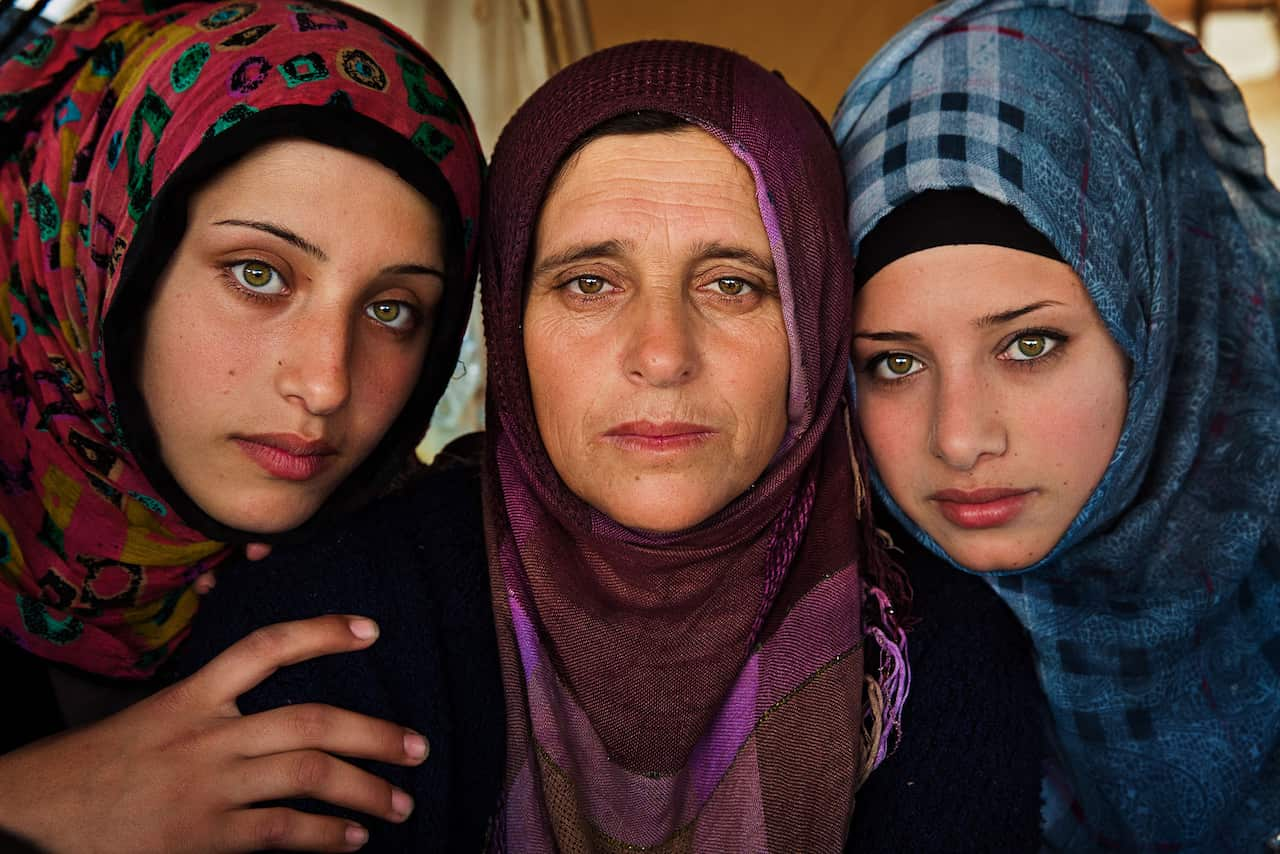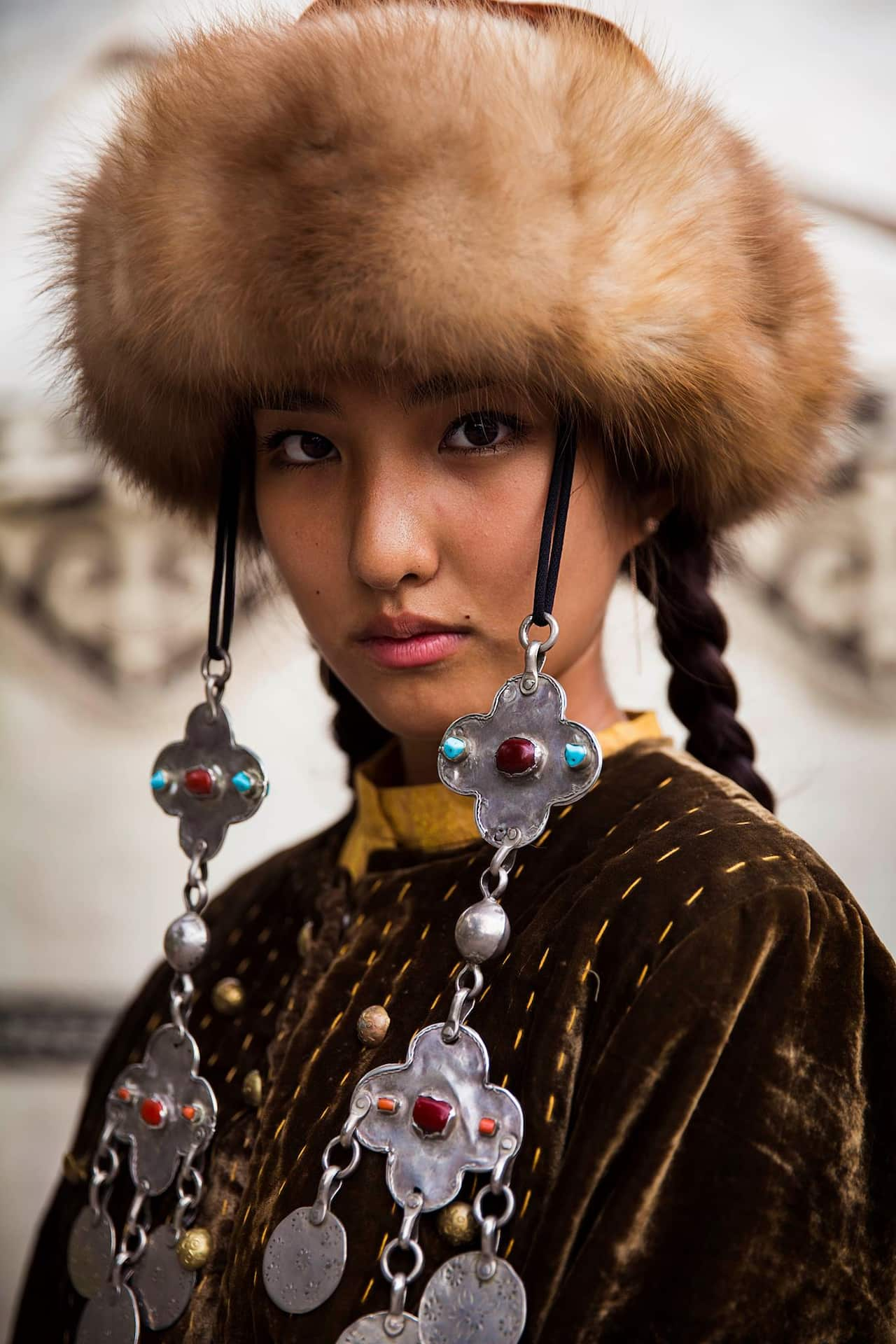When Romanian photographer Mihaela Noroc was traveling around the Ethiopia in 2013, she started photographing the women she saw there.
Some were living in tribes where nudity was the norm, others were part of conservative communities and covered their heads, while others still lived modern lives in the big cities.
She observed that most of them were struggling and working hard, sometimes facing discrimination as women, but all shined like stars, with dignity, strength and beauty.
"If there's so much diversity and so many stories in just one country, I surmised, what about the rest of the world," 32-year-old Noroc says.
"I realised that the wonderful women of our planet deserve much more attention, and that true beauty is usually unnoticed." Noroc quit her job and started on a project to photograph everyday women around the world in a natural and serene way, to show that beauty has no bounds and that the diversity of the world is a treasure, not a reason for conflicts.
Noroc quit her job and started on a project to photograph everyday women around the world in a natural and serene way, to show that beauty has no bounds and that the diversity of the world is a treasure, not a reason for conflicts.

Syria Source: The Atlas of Beauty/Mihaela Noroc
She photographed more than 2000 women around the globe, and has chosen 500 portraits of women from more than 50 countries for her book .
Noroc says she wants to show all women are beautiful in their own way. "For me, 'beauty' is 'diversity'," she says.
"For me, 'beauty' is 'diversity'," she says.

Iran Source: The Atlas of Beauty/Mihaela Noroc
"If you put the words 'beautiful woman' into Google, you'll mostly see very similar images of seductive women. But on the streets of the world, beauty has many more facets.
"In the end, beauty is in our differences, it's about being yourself, natural and authentic, not about trends, race, or social status." Noroc says she prefers to photograph faces without a lot of makeup in natural light, and also tries to capture the environment around them, which makes up part of their lives.
Noroc says she prefers to photograph faces without a lot of makeup in natural light, and also tries to capture the environment around them, which makes up part of their lives.

North Korea Source: The Atlas of Beauty/Mihaela Noroc
"When I photograph, I talk a lot, I try to make her feel special, proud and unique," she explains.
"I get by with five languages, and this helps me a lot, but in many places even that's useless and talking becomes pantomime.
"Many of the women that I photograph are in front of a professional camera for the first time, and this is not bad at all because they are more authentic." Noroc believes beauty can teach us all to be more tolerant.
Noroc believes beauty can teach us all to be more tolerant.

Amazon Rainforest Source: The Atlas of Beauty/Mihaela Noroc
"There’s much love, beauty, and compassion in the world and I see it with my own eyes," she says.
"Yet, a few sources of hate and intolerance can ruin all this. Many times, the victims of intolerance are women, and while on the road I hear many heart-breaking stories.
"I think now more than ever our world needs an atlas of beauty to present the struggles and dreams of everyday women, to send an empowering message to all of them." Noroc hopes sales of her book will help fund further travels to far-flung locations, "because there are many more faces and places of the world waiting to be discovered."
Noroc hopes sales of her book will help fund further travels to far-flung locations, "because there are many more faces and places of the world waiting to be discovered."







 The Atlas of Beauty can be purchased .
The Atlas of Beauty can be purchased .

Nepal Source: The Atlas of Beauty/Mihaela Noroc

Guatemala Source: The Atlas of Beauty/Mihaela Noroc

Ethiopia Source: The Atlas of Beauty/Mihaela Noroc

France Source: The Atlas of Beauty/Mihaela Noroc

Guatemala Source: The Atlas of Beauty/Mihaela Noroc

Kyrgyzstan Source: The Atlas of Beauty/Mihaela Noroc

Afghanistan Source: The Atlas of Beauty/Mihaela Noroc

Belgium Source: The Atlas of Beauty/Mihaela Noroc

Palestine Source: The Atlas of Beauty/Mihaela Noroc

Source: The Atlas of Beauty/Mihaela Noroc



